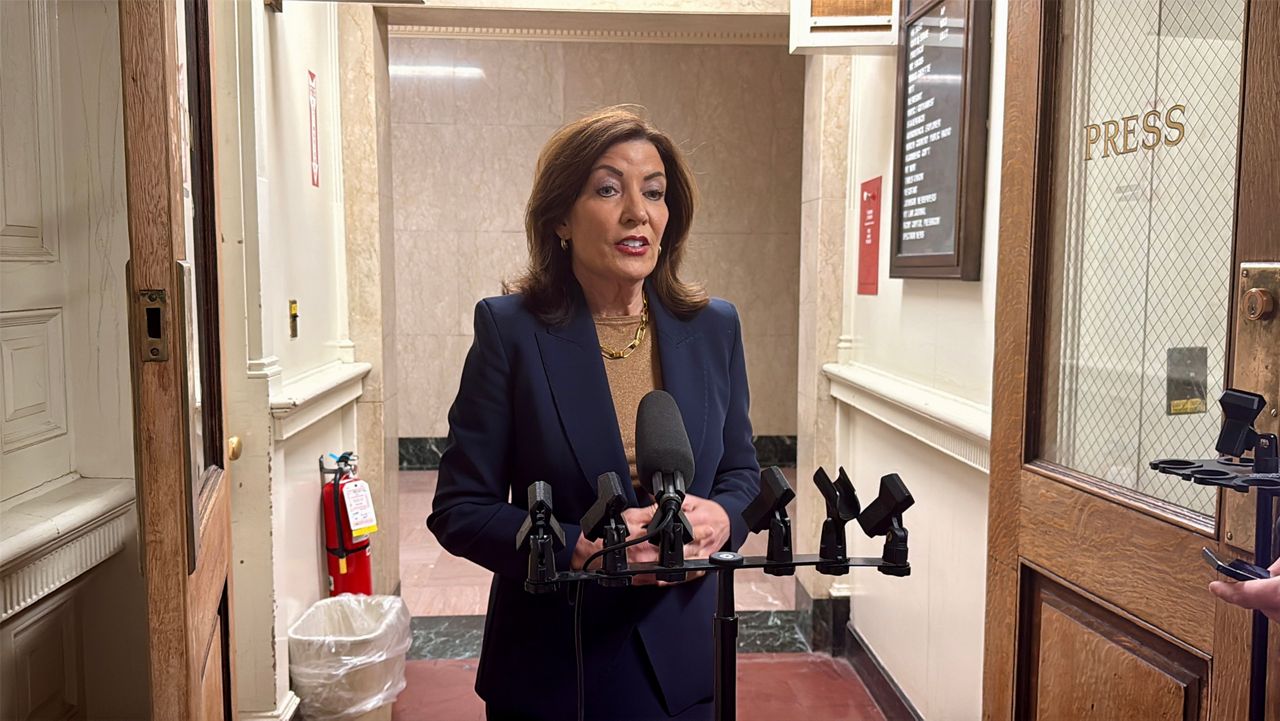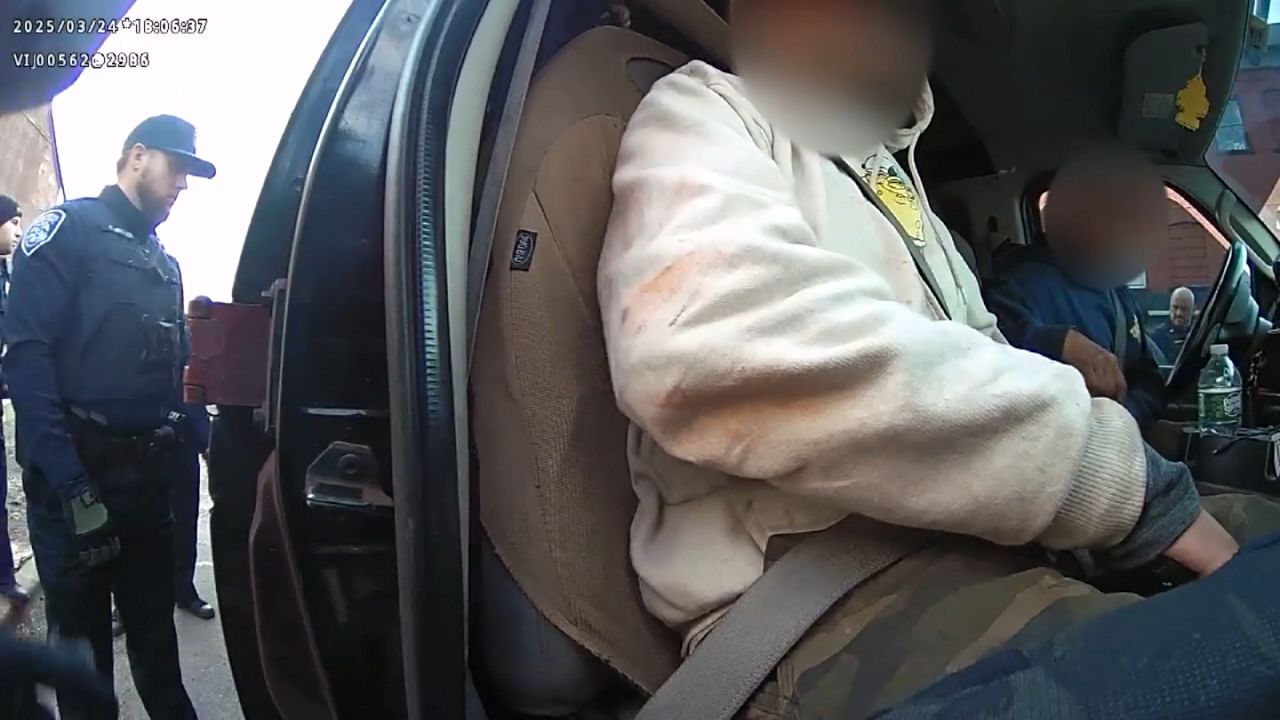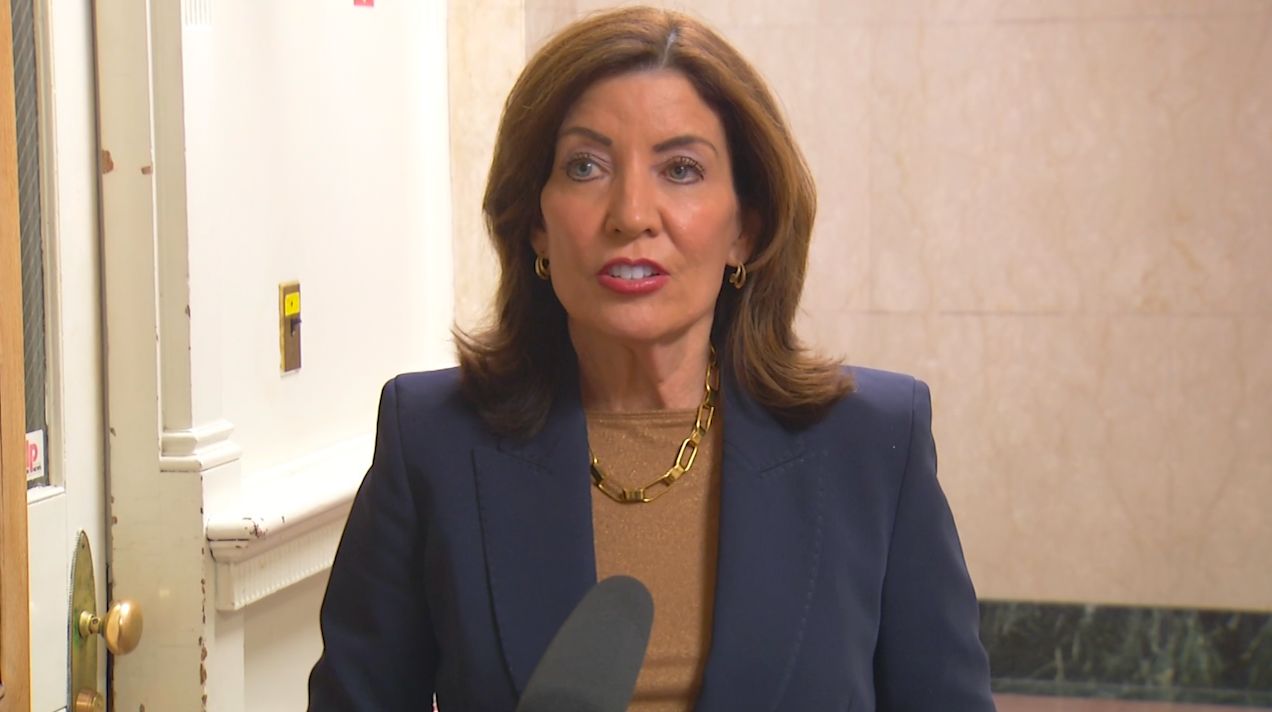Gov. Kathy Hochul will make long-awaited decisions in the coming days to sign or veto several bills aimed to improve animal welfare in New York.
One measure, which supporters dubbed the "Puppy Mill Pipeline" bill, had advocates engaging in debate most of the year. Sponsored by Senate Deputy Majority Leader Michael Gianaris, the legislation would ban the retail sale of live animals in New York that were bred under inhumane conditions.
It would force New York pet stores, like CitiPups in New York City, to change their business model. Dog sales make up about 85% of the store's revenue, with food, crates and supplies making up the other 15%.
"This bill doesn't increase the standards of care legally that these breeders have to abide by," said CitiPups manager Emilio Ortiz. "It doesn't hold them directly accountable for their actions or shut them down."
The legislation aims to prevent the buying and selling of animals from large-scale breeders that lack proper veterinary care, food or socialization and hurt their supply chain.
Ortiz is a boardmember of the organization Puppy People United to Protect Pet Integrity, representing 15 pet stores across the state. He and other pet store owners maintain the legislation would only hurt the state's roughly 80 pet stores, which are small businesses, and increase the rate of pet-buying scams and violent dog theft.
He's urged Gov. Hochul to impose standards for breeders compared to a statewide ban.
"They make us all feel good, but they don't solve the problem and it causes a lot of other problems," said Ortiz, adding about 35% of all online scams in 2021 involved buying a pet.
Bill sponsor Sen. Gianaris, a Democrat from Queens, said the law allows breeders to sell directly to customers and any pet store not buying from an abusive source would not have to close up shop.
"We shouldn't be thinking about letting your business continue on the backs of our four-legged friends who are suffering in order to create a supply chain," Gianaris said Monday. "...This bill would ban the retail sale of dogs, cats and rabbits that would cut off the puppy mill pipeline, which encourages this mass production of animals and treats them like a product as opposed to a living thing."
CitiPups works with dozens of breeders across the nation that Ortiz says they visit to ensure the animals are treated humanely.
CitiPups was named on ASPCA's list of pet stores earlier this year that get their puppies from problematic commercial breeding facilities, largely located in the Midwest, according to its April 2022 report "Where New York pet stores get puppies."
Ortiz stresses these kinds of lists from activist groups are biased and target pet stores, as they don't reveal the rescue organizations or shelters that buy animals from them as well.
"It's a bit intellectually dishonest because, you're not showing the bigger picture, and as a result, now we have policies like this where everybody just makes the assumption that every single breeder that a pet store works with looks like the ones you see on TV that are filthy and the [dogs] are dying, and that just simply isn't the case," he said.
There is no legal definition of how to classify a "puppy mill" or similar commercial breeder.
Advocates say they've had continuing conversations with Gov. Hochul about the measure over the last month. Representatives in the governor's office have asked both pet stores and lawmakers a series of questions about its potential economic impacts in the last several weeks as Hochul mulls her decision.
The measure passed the state Legislature this session with rare wide bipartisan support, giving the Senate deputy majority Leader additional hope for the governor's support.
"If Republicans and Democrats can come together around this bill, we can find a way to get the governor there, also," Gianaris said.
The bill arrived on Gov. Hochul's desk Monday, along with measures that would impose care standards for animal shelters, ban the sale in the state of cosmetics or products tested on animals and another to improve ingredients in pet food sold in the state. The governor often makes decisions to sign or veto legislation about a similar topic at the same time.
She had until the end of the year to take action.
The pet industry nets about $130 million annually in the U.S. About 2% of sales in the industry come from the sale of animals.










